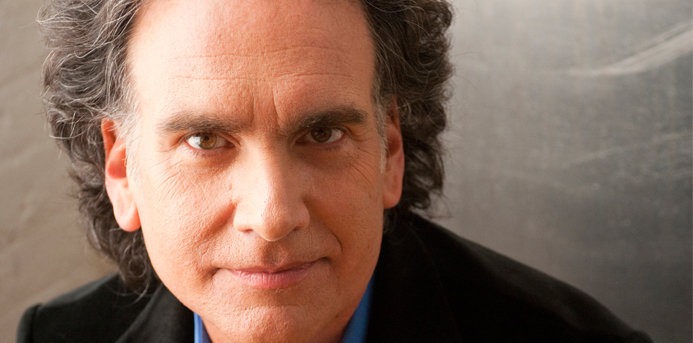You would be forgiven for believing that Peter Buffett’s greatest inheritance relates to the wealth generated by his father, Warren Buffett.
But, you would be wrong. Rather, Buffett’s best gifts from his parents are his values and the unconditional love and support which allowed him to become a Grammy Award-winning composer, New York Times best-selling author and humanist. He’s now paying those gifts forward to as many others as possible through his creative and philanthropic work.
Buffett takes his personal story and piano on the road for unique multimedia live events called a “Concert and Conversation,” based on his book, “Life Is What You Make Of It.” He specifically does this to encourage “every person to think more deeply about their own life path; take risks and ignite passions that will be self-fulfilling.” His candor, music and good intentions draw his audience in.
“The consistent response I get is that people didn’t know what to expect, and if they did they would have brought 10 other people. I love this.” Not surprisingly, he adds, “And it’s a source of great frustration.”
As a billion-dollar philanthropist, Buffet supports programs that ultimately should make it possible for more people around the world to enjoy the love, security and education necessary to develop to their full potential. He and his wife, Jennifer, believe that empowering adolescent girls will unleash the most change around the world. Their NoVo Foundation uses money his father asked him to give away “to foster a transformation from a world of domination and exploitation to one of collaboration and partnership.” This includes supporting programs intended to eliminate violence and human trafficking, as well as to advance Social and Emotional Learning (SEL).
Those are big, hard goals. But in his recent Chicago “Concert & Conversation” and a subsequent telephone interview, Buffett proved that he has the confidence, independence, courage and long-term perspective needed to champion bold new approaches that could work.
“We see a world out of balance. We’re trying to change that paradigm,” he says. “We like to create real partnerships. We listen to and learn from the partners we fund. We also foster collaboration among multiple nonprofits working in the same area, as opposed to their usual sense of competition for limited funds.”
This approach seems guided by his parents’ common sense and progressive values, as reflected in the “Concert & Conversation.” The live events incorporate childhood photos taken in the small (by North Shore standards) brown house from which Buffett walked to public grade and high schools. His parents unconditionally embraced Buffett’s decision to drop out of Stanford at age 19 and sell all of his Berkshire Hathaway stock for a pittance to pursue a career in music.
Buffett found fame and a long-lasting music career with the “Firedance Song”–his soundtrack for the most famous scene in Kevin Costner’s mega-hit, “Dances With Wolves.” He launched the NoVo Foundation after his father’s surprise 2006 request that Buffett give away $1 billion, because Warren believed that his children would do a better job philanthropically than he could.
Buffett’s philanthropic approach is outside the top-down, metrics driven norm, as demonstrated by his New York Times Op-Ed last year, in which he lambasted the “charitable industrial complex.” He expands on this now to focus on income equality.
“The fundamental thing is to dissolve the power dynamic around money, so we can learn and be more effective together,” he says.
NoVo has supported six programs with Chicago connections, including the Chicago Alliance Against Sexual Exploitation, a coalition of police and lawmakers fighting human trafficking, and CASEL, working to improve social-emotional learning in schools. NoVo also supports local nonprofits A Long Walk Home, GirlForward, Heshima Kenya and National People’s Action. NoVo plans to be even more involved in fighting human trafficking here, too.
Most of NoVo’s work, though, is national and international. “We’re much more involved now in coalitions that involve migrant workers, service workers and others, trying to bring them together around a common framework.” He continues, “In coming years, I hope we’ll see big changes on the social and economic justice fronts.”
When asked his recommendations for others who want to make a difference but have more limited means, Buffett gives pragmatic advice: “Tip bigger. Service workers are the people who are not getting the break that a number of us do get.”
“Also, look around in your community and see where you can lend any support, money, time, expertise, patience,” he adds.
He closes with a quote commonly attributed to Mahatma Gandhi: “Be the change that you wish to see in the world.” For Buffett, being that change seems easy; raised by parents with great values offering unconditional love and support, his vision for change is clearer than for most.

